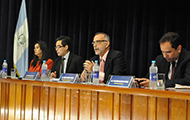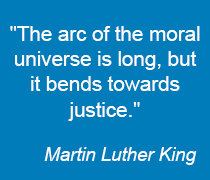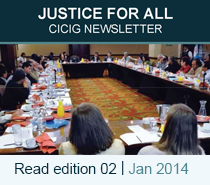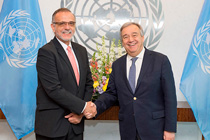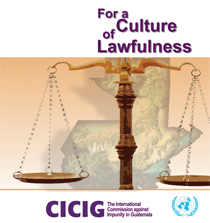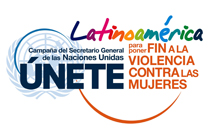The United Nations and the Government of Guatemala signed the Agreement to Establish the International Commission against Impunity in Guatemala (CICIG) on December 12, 2006. After the favorable Advisory Opinion was issued by the Constitutional Court in May 2007, the aforementioned agreement was later ratified by the Congress of the Republic on August 1, 2007. As a result, CICIG was established as an independent, international body designed to support the Public Prosecutor's Office (MP), the National Civil Police (PNC) and other State institutions in the investigation of crimes committed by members of illegal security forces and clandestine security structures and, in a more general sense, help to disband such groups. To do so, CICIG assists with investigations and criminal prosecutions in a small number of complex cases, as well as implementing steps—in accordance with its mandate—aimed at strengthening the institutions of the justice system so that they can continue to tackle these illegal groups in the future.
According to the Agreement, CICIG's mandate is comprised of three main objectives:
- First, CICIG should investigate the existence of illicit security forces and clandestine security organizations that commit crimes that affect the fundamental human rights of the citizens of Guatemala, and identify the structures of these illegal groups (including the links between such groups and State officials) as well as their activities, operating modalities and sources of financing.
- Second, CICIG should help the State to disband clandestine security structures and illegal security groups, and promote the investigation, criminal prosecution and punishment of the crimes committed by the members of such groups.
- Third, CICIG will make recommendations to the State of Guatemala regarding public policies to be adopted—including the necessary judicial and institutional reforms—to eradicate and prevent the re-emergence of clandestine security structures and illegal security forces.
In order to meet these objectives, CICIG—in accordance with the provisions of the Agreement—has the authority to provide technical advice to the state bodies responsible for conducting criminal investigations (especially the Public Prosecutor's Office). Furthermore, CICIG can act as a complementary prosecutor, in accordance with the Code of Criminal Procedure. The Commission also has legal standing to file administrative complaints against public officials, particularly against officials who have carried out acts to thwart the fulfillment of CICIG's mandate, and it can act as an interested third party in disciplinary procedures undertaken against such officials. Furthermore, CICIG has the authority to ensure confidentiality for people who cooperate in investigations—be it as witnesses, expert witnesses or a person who cooperates—and foster their protection before the relevant authorities.
In the resolution titled "The Situation in Central America: Progress in Fashioning a Region of Peace, Freedom, Democracy and Development" (A/63/L.18), the United Nations General Assembly expressed its appreciation to the countries that have supported the International Commission Against Impunity in Guatemala, and it urged them to continue to provide such support. In addition, the General Assembly thanked the Secretary General of the United Nations for the effective and efficient support provided to the Commission, and it asked that the Secretary General continue to provide support "so that the Commission is able to fulfill its mandate and address any challenges".
First Extension
On March 24, 2009, Guatemala's Minister of Foreign Affairs requested, through a personal letter addressed to the Secretary General, the extension of CICIG's mandate for an additional two years. The extension was confirmed on April 15, 2009 when Secretary General Ban Ki-moon sent a personal response to the Minister of Foreign Affairs expressing the UN's desire to have the Commission continue its important work to support Guatemalan institutions for a further two years. Thus, CICIG would continue working to dismantle illicit organizations and to tackle impunity in Guatemala until September 4, 2011.
Second Extension
In accordance with the procedure set forth in Article 14 of the Agreement to Establish CICIG, the Foreign Affairs Minister of Guatemala wrote to the Secretary General on December 23, 2010 to formally propose an extension of the mandate. By means of a letter signed on January 13, 2011, the Secretary General of the United Nations confirmed that the letter of the Minister, as well as his response, constitute an agreement to extend the mandate for a further two years, from September 4, 2011 onwards.


